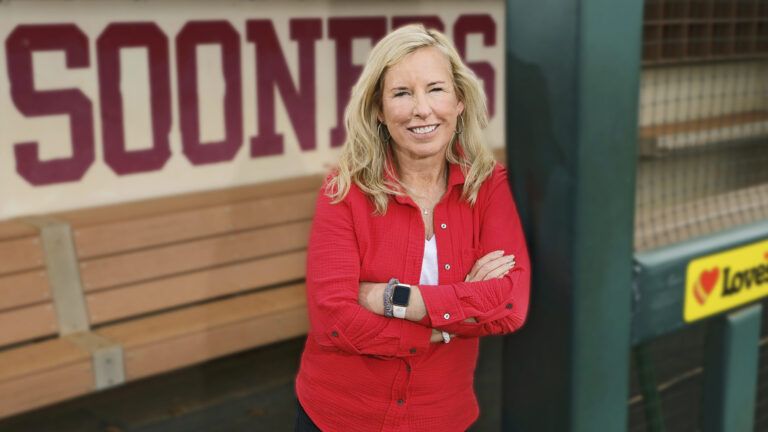The rain beat relentlessly against the windshield as we sped down the highway to Mercer. Pennsylvania. Mother sat next to me in the front seat. Since leaving from Pittsburgh nearly an hour ago, we had barely said a word.
It was 1952, and Ding-Dong was dying.
Ding-Dong was my grandfather, Fred Brooks McFeely, my mother’s father—and one of my best friends for as long as I could remember.
He earned his nickname years ago one sunny afternoon when he plunked me down on his sturdy lap to teach me the old nursery rhyme. “Ding Dong Dell.” The name stuck.
ENJOYING THIS STORY? SUBSCRIBE TO GUIDEPOSTS MAGAZINE!
I was grown up now, two years out of college and working in New York for NBC television. Just yesterday Mother had telephoned me at work with the news of Ding-Dong’s illness. Well into his 80s, he’d been in a nursing home for several years. In recent months. however, his condition had worsened.
“The doctors say it’s just plain old age,” Mother had explained to me quietly. “They say he’s fading fast.” There was a long pause. “Do you think you could come home, Fred? I think we should visit him as soon as possible.”
I made plans to fly from New York to Pittsburgh that evening.
In one sense, it was good to get out of the city. Lately it seemed that nothing had been going right. When I first graduated from college and arrived at NBC, I was a starry-eyed idealist—bursting with enthusiasm for the potential I felt that television held not only for entertaining, but for helping people.
I was particularly interested in children’s programming. But these were the early days of television and there didn’t seem to be much interest in such things.
So my goals seemed to be shifting—and this bothered me. I really didn’t know where I was going, or why. My self-confidence had sunk to near-zero. And never had I felt so far away from God.
I’d taken to stopping by St. Patrick’s Cathedral on Fifth Avenue for morning prayer before going to work. Mostly, I prayed for guidance. But I was still uncertain and confused…
“Fred,” my mother interrupted my thoughts as our car continued on the wet highway. “He might not know you.”
“What?” I asked.
“Your grandfather,” she answered. “He’s all mixed-up. He doesn’t know what day it is. Sometimes he doesn’t even know where he is.”
I felt my throat tighten. Poor Ding-Dong.
“But he is happy,” Mother went on. “And he loves to watch television.”
“He does?”
“Yes, he loves to watch TV—especially The Kate Smith Hour. He knows that’s one of the shows you work on. And from what I gather, he’s forever telling everyone in the home about his grandson in New York City. He’s so proud of you, Fred. You’re special to him. You always have been, you know.”
I nodded silently.
READ MORE: BOB KEESHAN ON SHARING
Listening to the rhythmic sound of the windshield wipers, I let my thoughts travel back to childhood …
As a youngster, there was nothing I liked better than Sunday afternoons at Ding-Dong’s rambling farm in western Pennsylvania. Surrounded by miles of winding stone walls, the rustic house and red brick barn provided endless hours of fun and discovery for a city kid like myself.
I was used to neat-as-a-pin parlors with porcelain figures that seemed to whisper, “Not to be touched!”—to clean, starched shirts and neatly combed hair warning, “Not to be mussed!”—and to the inevitable wagging of an adult’s “Don’t do that, you might hurt yourself!” finger.
I could still remember vividly one afternoon when I was eight years old. Since my very first visit to the farm, I’d wanted more than anything to be allowed to climb the network of stone walls surrounding the property.
My parents would never approve. The walls were old; some stones were missing, others loose and crumbling.
Still, my yearning to scramble across those walls the way I’d watched other boys do grew so strong that finally, one spring afternoon, I summoned all my courage and entered the drawing room where the adults had gathered after Sunday dinner.
All were chatting softly, sipping cups of tea and coffee. I cleared my throat. No one seemed to notice me.
“Hey,” I said hesitantly.
Everyone noticed me.
“I, uh—I wanna climb the stone walls,” I said. “Can I climb the stone walls?”
Instantly a chorus went up from the women in the room.
“Heavens, no!” they cried in dismay. “You’ll hurt yourself!”
I wasn’t really disappointed. The response was just as I’d expected. But before I could leave the room, I was stopped by Ding-Dong’s booming voice.
“Now hold on just a minute,” I heard him say. “So the boy wants to climb the stone walls? Then let the boy climb the walls! He has to learn to do things for himself.
“Now scoot on out of here,” he said to me with a wink. “And come see me when you get back.”
“Yes, sir.” I stammered, my heart pounding with excitement.
For the next two and a half hours I climbed those old walls—skinned my knee, tore my pants, and had the time of my life. Later, when I met with Ding-Dong to tell him about my adventures, I never forgot what he said.
“Fred,” he grinned, “you made this day a special day, just by being yourself. Always remember, there’s just one person in this whole world like you—and I like you just the way you are.”
I wondered now if he ever knew how important that day—and his words—had been to me. I wondered if there was any way I could ever repay him…
The rain was letting up as we drove in the main drive to the neat clapboard cottage where Ding-Dong stayed. A white-uniformed nurse answered the door. “Mr. McFeely’s had a nice day,” she said as she let us in. “He’s watching TV now. Kate Smith’s show is on. It’s his favorite program.”
“Ding-Dong?” I said, peering into the dimly lit room. He was sitting in a chair next to the bed.
“Ding-Dong?” I hardly recognized him. He was so tiny, so frail and bent. He lifted his head.
“Hello,” he said, extending a feeble hand. “Hello, young man. Have a seat.” He motioned to a nearby chair.
“Have a seat,” he repeated, “and watch this show with me. This is Kate Smith. This is a fine show.”
I sat in the chair and watched the program. When the commercial came on, Ding-Dong said, “You know, young man, this television’s a mighty great invention, I’ve got a grandson in New York, and he told me all about it. He’s something, that boy. And he’s going to do great things in television. Yes, he is.”
Ding-Dong was smiling, his blue eyes twinkling ever so faintly.
“Yes,” he went on, “I’ve got quite a grandson. Would you like to meet him?”
It was obvious Ding-Dong didn’t recognize me. But that was all right with me. Wherever in time or place Ding-Dong was in his weary old mind, t just wanted to let him be. All I could hear were his own words echoing in my head:
There’s just one person in the whole world like you. And I like you just the way you are.
“That’s some grandson you’ve got,” I said. “You know, I believe he is going to try to do good things in television. He sure cares a lot about you. You’ve helped him understand some of the most important things in life.”
Ding-Dong smiled and nodded. He seemed very happy, but he was tired. He asked to be put to bed. The nurse helped him up from his chair. Mother and I tucked him in. We chatted a bit more and then sat quietly until he fell asleep.
On the way home, we were silent. But I felt strangely happy inside—somehow peaceful. Something very special had happened that afternoon. In a very personal way, God had answered my prayers.
I was beginning to understand what it was He wanted me to do with my television career: He wanted me to offer children the same kind of reassurance, encouragement and sense of self-worth that Ding-Dong had given me.
I didn’t know exactly how or when the right opportunities would arise, but I felt confident now that I would be ready to meet them.
A few weeks later, I received an invitation to leave New York and join a small educational television station in Pittsburgh that was looking for a person to develop new programming.
I jumped at the chance. And it was from those small beginnings—hand-built sets, props and puppets—that the themes and characters that now populate Mister Rogers’ Neighborhood evolved.
That was 26 years ago. Today, through the wonder of television, Mister Rogers’ Neighborhood is visited each day by millions of children throughout America and other lands.
There have been changes over the years; characters and special guests to the Neighborhood come and go. But one thing—my message to the children at the close of every show—remains the same.
“There’s just one person in the whole world like you,” the kids can count on hearing me say. “And people can like you just the way you are.”
Ding-Dong, I know, would agree.
For more inspiring stories, subscribe to Guideposts magazine.






